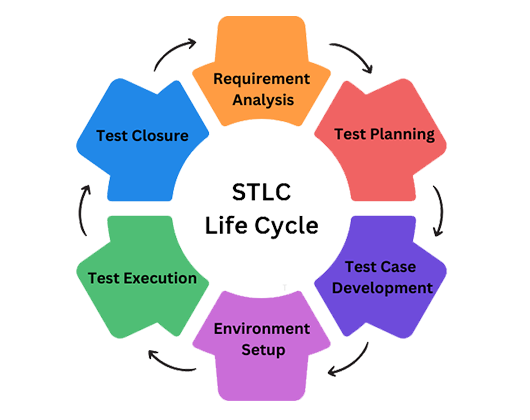We’re ready to get started, are you?
Get in touch and we can connect you with the right people.
At Classic, we offer top-notch software testing services to ensure your applications meet the highest standards of quality, reliability, and security. Our expertise spans manual and automated testing, performance analysis, and security assessments. By leveraging advanced tools and methodologies, we identify and address defects early, reducing costs and improving efficiency.
Trust Classic to deliver flawless software solutions that enhance user satisfaction and drive business success. Partner with us today to unlock the full potential of your software with our comprehensive testing services.

Quality Assurance: Testing ensures that the software meets the quality standards defined by the stakeholders, including functionality, performance, and user experience.
Reliability: By identifying and fixing defects early, testing helps to produce reliable software that performs consistently under various conditions.
Cost-Effectiveness: Finding and addressing bugs during the development phase is significantly cheaper than fixing issues after the software has been deployed.
Security: Testing can identify vulnerabilities and security flaws, protecting the software from malicious attacks and data breaches.
Customer Satisfaction: High-quality, reliable software leads to satisfied customers, fostering trust and loyalty.

Manual Testing and Automated Testing. Within these categories, there are various testing methods:
Exploratory Testing: Testers explore the software without predefined test cases, identifying defects through ad-hoc usage.
Ad-hoc Testing: Similar to exploratory testing, but even less structured, relying on the tester's intuition and experience.
Regression Testing: Ensuring that new code changes do not negatively impact existing functionalities.
Usability Testing: Assessing how user-friendly and intuitive the software is from the end-user's perspective.


Unit Testing: Testing individual components or modules of the software to ensure they work as intended.
Integration Testing: Testing the interaction between integrated modules to ensure they work together correctly.
System Testing: Testing the complete system as a whole to ensure it meets the specified requirements.
Acceptance Testing: Validating the software against user requirements to ensure it meets the acceptance criteria.
Performance Testing: Assessing the software's performance under various conditions, including load and stress testing.
Security Testing: Identifying vulnerabilities and ensuring the software is secure against threats.

A variety of tools are available to support different aspects of software testing. Some of the most popular tools include:
JIRA: A widely used tool for bug tracking, issue tracking, and project management.
TestRail: A comprehensive test case management tool that helps plan, manage, and track testing efforts.


Selenium: An open-source tool for automating web browsers, widely used for functional and regression testing.
JUnit: A popular framework for unit testing Java applications.
TestNG: An advanced testing framework inspired by JUnit, designed for a wide range of testing needs.
Appium: An open-source tool for automating mobile applications across different platforms.
LoadRunner: A performance testing tool for identifying and diagnosing application performance issues.
Burp Suite: A comprehensive solution for web application security testing.

The field of software testing is continuously evolving, driven by advancements in technology and changes in software development practices. Trends that shaping the future of software testing:
AI and ML are revolutionizing software testing by enabling intelligent test automation, predictive analytics, and enhanced test coverage. AI-driven tools can identify patterns, predict defects, and optimize test cases, making testing more efficient and effective.
The adoption of test automation and continuous testing is growing, driven by the need for faster delivery and higher quality. Automated testing tools are becoming more sophisticated, enabling comprehensive and reliable testing across various environments.
The integration of testing into the DevOps pipeline (DevTestOps) ensures that testing is an integral part of the software delivery process. This approach promotes continuous testing, early defect detection, and faster feedback loops, enhancing overall quality and efficiency.
Shift-left testing involves integrating testing early in the development process, while shift-right testing focuses on testing in production. Both approaches aim to improve quality by detecting and addressing issues early and ensuring continuous monitoring and feedback..
With the increasing focus on security and privacy, testing for vulnerabilities and compliance is becoming a critical aspect of software testing. Security testing ensures that applications are resilient against threats, while privacy testing ensures compliance with regulations such as GDPR and CCPA.
Get in touch and we can connect you with the right people.